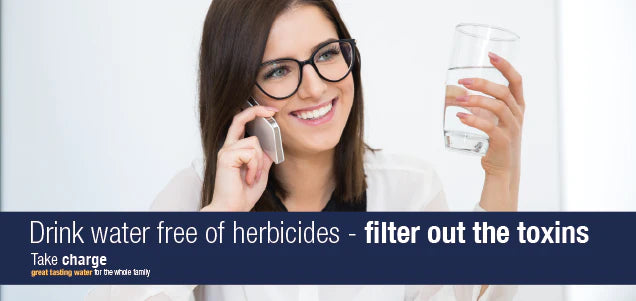While science developments have helped to revolutionise farming, the use of herbicides - and more importantly how it trickles into our water supply - is a serious cause for concern.
Herbicides have been applied to crops across the world since being developed in the 1940s. Sprayed onto crops to kill weeds without damaging the product, these chemicals can embed themselves into the soil-bed and inadvertently find their way into drinking water.
Health Concerns of herbicides and pesticides
A report being presented this week highlights this risk of the unknown in the use of pesticides (including herbicides) that have been linked to serious health concerns.
The report points to the fact that pesticides have been linked with conditions ranging from skin rashes to Alzheimer's Disease, cancer, and neurological conditions.
And it reports: "Pesticides also present a serious threat to drinking water, particularly in agricultural areas, which often depend on groundwater"
Strict regulations are already in place in the United Kingdom governing the use of herbicides to control weeds on land near to waterways, and the EU has been a leader in taking precautionary action over the use of pesticides.
Fear of the unknown
However, a risk remains that some toxins could find their way into the water system through water run-off from fields in the event of heavy rain, or by being disrupted by wind.
Such is the concern about what possible effects these chemicals could have on the water supply system that the Environment Agency has strict guidelines in place governing their use near to a waterway.
In the developed world checks are in place that any possible contamination is limited, however, there is still scope for a small amount of herbicide to find its way into the water ways.
Despite herbicides being given rigorous testing, the widespread use is still a cause for concern when the associated health and environmental risks remain unknown.
How to remove herbicides and pesticides from water
Take action - Drink water free of herbicides
So, how do we protect ourselves from the unknown? Investing in a water filter is an obvious place to start.
Doulton Water Filters harness natural materials to filter out chemicals that could be present in drinking water.
As nutritionist Jenny Tschiesche recently warned in her influential Lunchbox Doctor blog: "Any filter is better than no filter. If you don't have a filter you become the filter."
Concerned about the possible chemical content in drinking water she invested in one of Doulton's Stainless Steel Outdoor Recreation filters, which can be used on the go.
Describing the filter as â"one of the best purchases we have made", Jenny wrote: "The best and most cost-effective solution is a combination of a decent water filter at home. I highly recommend Doulton Gravity Filters and a really good quality glass or stainless steel reusable drinking bottle...this method of obtaining clean, chlorine-free water without particles or pathogens is more cost efficient than a filter jug and is far more environmentally friendly than bottled water."
Play it safe
Strict maximum levels for pesticide content in drinking water have been put in place under the European Drinking Water Directive but while such widespread use of pesticides remains so does the risk that the toxins might enter the water system.
Leading policy-makers believes it is time to take steps to minimise the risks of toxins to the eco system.
Keep your family safe from the risks of the unknown and filter out the toxins from your drinking water by using a water filter.






